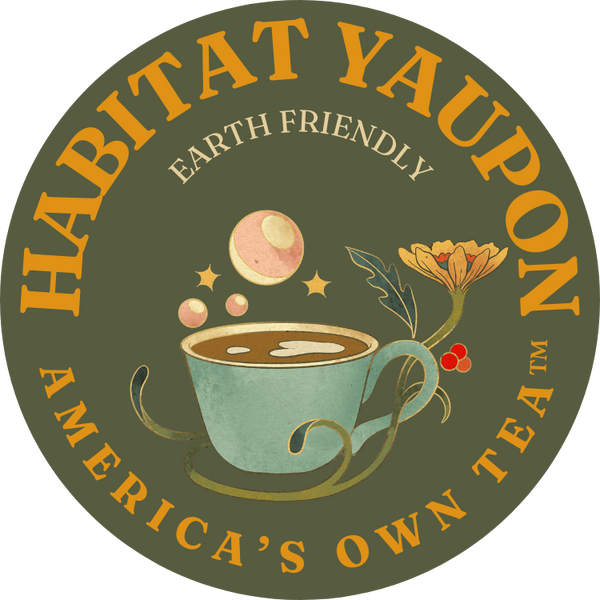Our Story
Welcome to our Habitat Yaupon story. We hope you’ll become a part of it!
Love the Land, Leave a Legacy
We’ve always had a deep love of nature and desire to conserve nature for today and generations to come. When we decided, gladly, to shoulder the responsibility of stewarding the land that had been in our family since great-grandpa Wiley first settled here in 1901, our primary goal was to leave this piece of rural Texas better than we found it.

A Lot to Learn
But love of nature and conservation of natural resources are two different things. We quickly realized there were principles of good land stewardship and sustainability we needed to learn.
Next came hundreds of hours of research about the Post Oak Savannah, our native ecosystem. Eager to know more, we attended workshops, read books and articles, visited demonstration sites, and tapped into the many agencies offering expert guidance. Along the way, we found ourselves agreeing to host several monitoring devices for the endangered Houston Toad species. Through this process, we came to understand that the land's long-term health is dependent on a greater diversity of all life forms.
Habitat Restoration
A good portion of our ranch land had become inundated with thickets of yaupon and cedar beneath the oak and hickory trees. We created various hand-cut trails to traverse these areas, and learned along the way that there was very little diversity of plant life inside these dense, dark thickets—just snarls of invasive yaupon, thorny vines and cedar. It's hard to picture it now, but this spot once had been lush open grasslands dotted with oak trees.

Let's get to work! It was time to thin out the dense understory in a sustainable way and restore the habitat. Being conservation minded, we were curious how the plant matter we removed could be put to good use.
Discovering a Tea Lost to Time
More research pointed to a positive aspect of yaupon – it is the only substantially caffeinated plant native to North America, and specifically to the southeastern United States. Even more eye-opening was that indigenous people had been brewing yaupon leaves to make a tea for millenia. Records show that the colonists and settlers also drank yaupon tea regularly through the time of the Civil War, and it continued to be consumed up until the early 1900s. Yaupon even had a following in Europe for a while.
Habitat Yaupon is Born
Fast forward through the trial-and-error phase of processing yaupon leaves to perfect our method for producing Habitat Yaupon teas. Thus began our mother-daughter business of producing delicious Habitat Yaupon products that we could bring to market.

And the market is growing. Thanks to a handful of folks who started selling yaupon a few years ago, more and more people are waking up to the fact that yaupon is full of health benefits and an environmentally friendly alternative to other caffeinated beverages.
We like to visualize an America where every coffee and tea drinker switches to yaupon as their favorite caffeinated beverage, truly America’s Own TeaTM. We could make a substantial impact on the health of the environment and nourish our bodies with a more healthy form of caffeine. Will you join us?
Cheers y’all. And as cousin Tom would say, yaupon intended!
Kathryn and ElizabethHabitat Yaupon Co-Founders
